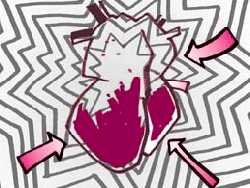Matters of the heart
 a team of doctors at Mumbai's Nanavati hospital have achieved a major breakthrough in the treatment of coronary diseases. They recently inserted radioactive stents (metal stems) in the coronary artery for the first time in Asian medical history. The process involves declogging arterial blocks through radioactive exposure or therapy. Once commercialised the technique could improve the success rate of angioplasty operations. It has so far been tried out on five persons, all of whom have responded well.
a team of doctors at Mumbai's Nanavati hospital have achieved a major breakthrough in the treatment of coronary diseases. They recently inserted radioactive stents (metal stems) in the coronary artery for the first time in Asian medical history. The process involves declogging arterial blocks through radioactive exposure or therapy. Once commercialised the technique could improve the success rate of angioplasty operations. It has so far been tried out on five persons, all of whom have responded well.
The team headed by M J Gandhi, head of the department of cardiology at the hospital worked with the assistance of the Bhabha Atomic Research Centre in Mumbai. The doctors claim that the process would involve no side effects as the radioactivity confined to a region of around 3-5 mm around the stent, would disappear after a month.
Related Content
- Gender, health and air pollution
- Are all air pollution particles equal?: how constituents and sources of fine air pollution particles (PM2.5) affect health
- Space applications for management of air pollution in Asia and the Pacific
- Are all air pollution particles equal? – how constituents and sources of fine air pollution particles (PM2.5) affect health
- Social susceptibility to multiple air pollutants in cardiovascular disease
- Economic Survey of Delhi 2020-21
